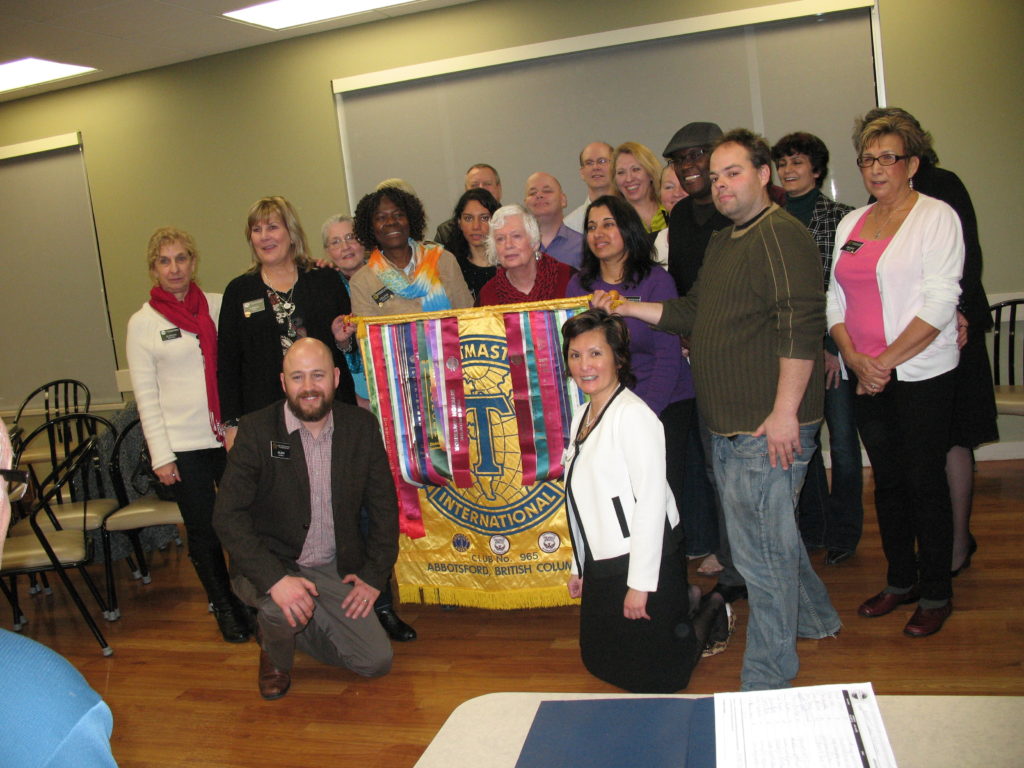
Most of us at some time will encounter a disruptive force or event that changes the course of our lives. I’ve watched individuals lose courage and falter under the battering of adverse circumstances. I’ve seen others get up, dust themselves off and look around to find solutions or new opportunities. When an onslaught comes, often it’s the thoughts we entertain that determine whether we go down for the count, or rise and fight another round.
Some years ago I lost a challenging, invigorating job to an individual with a more prestigious degree. After floundering a few months, I realized I needed to re-invent myself to avoid sinking into an emotional abyss. I’d have to develop new thinking and new skills. Dealing with a significant health issue at the same time wasn’t going to make this easy.
I began contemplating joining a Toastmasters club. It was a chilling thought and I wrestled with the fear for several months. Like a lot of people, I was more afraid of public speaking than of dying. Eventually, with great trepidation, I attended a meeting of Langley Township Toastmasters and signed up. They were a sophisticated bunch, including several department heads. I was unemployed, and not feeling successful. Fortunately they were gracious and welcoming.
I was given the introductory manual and began preparing to deliver my Icebreaker speech. I learned that speeches, and all other roles, were timed and evaluated. Speech evaluators were encouraged to employ the “sandwich technique.” This consisted of positive observations, then a suggestion for improvement, followed by one or more positives. The Grammarian reported on use of crutch words like “you know,” “uhm.” “ahh,” and “I mean.” At no time were all my deficiencies mentioned, for which I was enormously grateful.
Toastmasters takes members through a series of manuals, each designed to develop skills such as organizing a speech, using vocal variety, and working with props. I learned about the value of humour, anecdotes, startling facts and inspirational quotes.
Over time, with the helpful advice of evaluators, counsel from my mentor and performing various club roles, my knees quaked less frequently. Like many novice Toastmasters, I began by memorizing my speeches. I knew this could be hazardous because I might lose my way. This did happen about three sentences into my tenth speech, “Inspire your Audience.” Mortified, I said, “If no one objects, I’ll start over.” They had all experienced embarrassment while speaking and no one objected.
Even before my tenth speech I had felt a desire to step farther into the vast, frightening unknown of public speaking. To this end I entered two contests, and lost in both. Then, after completing the first manual, I entered the annual Toastmasters speech contest at the club level. I surprised myself and the club by winning. This qualified me for the area contest. My mentor, a successful engineer and a Distinqished Toastmaster (DTM) told me, “With that speech you might win the area contest.” I wondered if he meant “if you win it will be because you’ve written a strong speech, not because of your speaking ability.”
My speech enabled me to win at the area level and the division level. In the province wide District Contest, I didn’t even place. This was a disappointment, but also a reminder that I still had a lot to learn if I wanted to speak at that level. It was my writing, not my speaking skills, that had taken me this far.
Looking back now, I realize that the Toastmasters teaching and experience provided a much needed boost in confidence. I began participating in community issues. If no one was willing to lead, I volunteered. And if no one was willing to speak to the media, I did. One day an Abbotsford councillor asked if I’d deliver the morning commentary on CBC radio. She had approached a respected community leader but he had declined. I felt it was a great opportunity to present a much needed environmental message to a wide audience. CBC sent me a cheque for one hundred dollars for delivering a message I considered important.
At this time when Canada is under threat from COVID 19, many of us are wondering what the future holds. No one can answer this question, but when onslaughts come we can view them as opportunities to broaden the horizons of our thinking, be more adventurous and even take a few risks.
